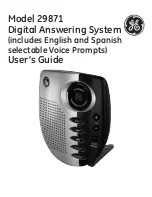
5 5
© by NECTA VENDING SOLUTIONS SpA
01 10 126-03
PROGRAMMING
The integrity of the vending machine and its conformity
with the rules and regulations in force for its relevant
systems must be checked by qualified personnel at least
once a year.
Maintenance operations should be carried out with the
machine energised and therefore exclusively by qualified
personnel, who are trained in the correct use of the machine
and aware of the specific risks of such condition.
To energise the electrical system of the machine with the door
open, simply insert the special key into the door switch.
The dispensing motors remain disconnected, thanks
to the special switch (see Fig. 5), even with the key
inserted.
This is to avoid the risk of accidental injury.
The rotors must be electrically operated with the door
closed.
Energised parts cannot be accessed with the door
open. Only those parts inside the machine with protec-
tive covers, and carrying the message "disconnect
electricity before removing the protective cover", re-
main energised.
Before removing such protective covers, the external
switch must be disconnected.
The door can be closed only after removing the key from the
door switch.
CONTROL BOARD FUNCTIONS
AND INDICATOR LIGHTS
The control board controls all of the apparatus functions,
and more precisely:
- Serial interface for 24 V ac Executive electronic coin
mechanism.
- Parallel interface for 24 V dc coin validator
- Serial interface for MDB coin mechanism.
- Programming of the number of selections: 1 to 10.
- Programming of the vending price for each single
selection.
- Time-out function for the vending motors, adjustable
from 0 to 30 seconds.
- Programming of the coin values for use with 24 V
validator.
- Storing of the total sales for each selection.
- Storing of the total amount of all sales.
- Storing of the total coin value cashed.
- Storing of the motor locks following a time-out condi-
tion.
- Storing of the total motor resets.
- Storing of the number of serial transmission failures
occurred.
LED L1 is normally switched off; it blinks when no commu-
nication takes place with the coin mechanism.
LED L2 is switched on when 24 V dc voltage is detected.
LED L3 is switched on when 5 V dc voltage is detected.
Trimmer TR1 controls the contrast of the liquid crystal
display (available as optional).
Push-button P1 resets the control board.
Fig. 27
CN1
Executive serial interface
CN2
MDB serial interface
CN3
RS232 expansion
CN4
Not used
CN5
24 V validator interface
CN6
Not used
CN7
LED segment display
CN8
Provision for LCD
CN9
Input/output keypad 1 to 6
CN10
Input/output keypad 7 to 8
CN11
Input/output keypad 9 to 10
CN12
Empty state micro-switch, motor cam 1 to 7
CN13
Empty state micro-switch, motor cam 8
CN14
Empty state micro-switch, motor cam 9 to 10
CN15
Motor output 1 to 8
CN16
Motor output 9 to 10
CN17
Board power supply
CN18
Not used
CN19
MDB power supply
CN20
Not used
CN21
Not used
F1
Motor fuses
F2
24 Vac board power supply fuse
RL1 - 10
Motor relays
J9
Reset contacts
Summary of Contents for Zeta CB 450
Page 2: ......
Page 4: ......
Page 26: ...NECTA VENDING SOLUTIONS SpA Sx34002...
Page 27: ...Zeta 550 9...
Page 28: ...NECTA VENDING SOLUTIONS SpA Sx34400...
Page 29: ...Zeta 550 6...
Page 30: ...NECTA VENDING SOLUTIONS SpA Sx34700...
Page 31: ...Zeta 450 5...
Page 32: ...NECTA VENDING SOLUTIONS SpA Sx35100...
Page 33: ...Zeta 450 7...
Page 34: ...NECTA VENDING SOLUTIONS SpA Sx35300...
Page 35: ...Zeta 750 9...
Page 36: ...by NECTA VENDING SOLUTIONS SpA NOTE...
Page 37: ...by NECTA VENDING SOLUTIONS SpA NOTE...
Page 38: ...by NECTA VENDING SOLUTIONS SpA NOTE...
Page 40: ......
















































